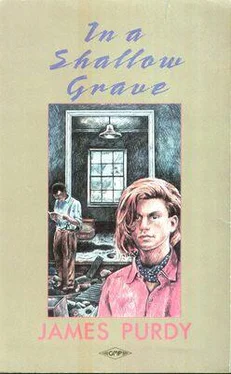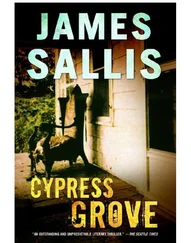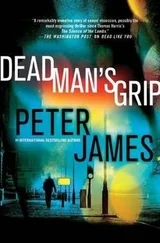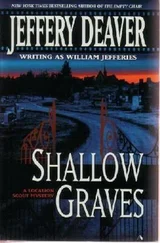All the same this black man was coming up the road to my house step by step, as slow and self-possessed as if he had taken that walk every day of his life and belonged on my property to boot, and I could hear my breathing getting louder and louder just like it does before I have a spell. Then I heard him ring the front-door bell, which I haven’t heard rung for I don’t know how long. This trumpet-clarion made the birds all stop singing and must have been carried to any boats at sea. Quintus stood up with a big book in his hand but I motioned him to stand right where he was, and I went to the front door and was about to say “Good evenin’ ” when the arrival sang out, “Is Quintus Isham within?”
He was lordly and never looked at me once, but kept his eye on the wren house over the arch of the door.
“Quintus Pearch you mean,” I amended his question.
“Is he within?”
“Well,” I said, disgusted, “why don’t you come in and see,” and I opened the screen, he hesitated a while, pulling on one of his coat sleeves, and then he entered my house and without warning he acted almost hamstrung, there was certainly suddenly something wrong with his knees, which buckling, brought him to sit down before I could invite him.
“Quintus Isham Pearch.” Our visitor stretched out his hands toward my applicant, and then gave a half-lunge up from the chair as Quintus cautiously drew near him.
“Dear son,” the visitor continued, not quite risen up from the chair, “I am the Reverend Spinney from Three Oaks . . .”
As Quintus gazed fearful at the Reverend struggling to rise from his half-sitting position, my own sorrows all sort of vanished, for I could presage what was about to overtake him as one foresees the bad ocean storm that is to come from some tiny little warning, like the way a spider weaves its web.
“I have tried repeatedly to reach you for days . . . I had no idea indeed you had left home and mother . . .”
Reverend Spinney had now risen to his full height, and towered above Quintus in a wavering toppling manner. He folded his arms and his mouth set hideously.
In considerable confusion I sat down and motioned Quintus to do the same in the little chair beside me, which he gradually was able to do.
The Reverend from his finally achieved height gave me one sweep of a look as if to be sure he had seen me right the first time on the front porch, he stopped short again after this examination of my countenance, cleared his throat, and then leaning over Quintus and touching his forehead got out, “I am the bearer of the saddest news one man can impart to another. Your beloved mother is dead. We have translated her remains from the Heytesbury Funeral Parlor to her own domicile, where we have been so long awaiting you, her only son and heir. The services will begin, Quintus Isham,” he disentangled his left hand from his right, drew out a timepiece which might almost have passed for an alarm clock for all the noise it made when out of his shiny purple-black vest pocket, “services due to start at twelve noon this day.”
I remembered what Quintus had read to me then about the fact that at twelve noon we have no shadow and it is then the Power of Evil has jurisdiction over us, and I looked over at him, but his face had a sort of grin like that really means, and what he also was in store for.
Reverend Spinney looked away briefly from the bereaved son to half-look at me, almost as if he knew what I was thinking about.
“Shall we pray then, gent’men?” The preacher bowed his head, and waited, but only Quintus got up, and kneeled down, and the Reverend waited a bit more and then realizing, I guess, I wasn’t going to follow suit spoke on the subject of how short a day we have, like the flowers, quick to bloom, quick to be cut down, and so on. I don’t recollect what else he said because I was still too provoked by the way the Reverend had walked right in my house like I was going to lose my property, and who knows, maybe this black Reverend was going to buy it out from my hands, but then my attention was brought back to Quintus. His whole body was shaking like he had malaria, and the Reverend irritated me still more then because he did not seem to notice the state Quintus was in, but then all of a sudden while my mind had been on something else Quintus was standing up and talking, saying, I don’t know if I can attend the services at such short notice, Reverend. You see . . .”
“Why, whatever do you mean by that, son?” the Reverend Spinney wondered, throwing his head way back and letting us see a set of teeth entirely gold through his open mouth.
“My friend Garnet here,” Quintus turned to me and I only needed to give him one glance to know he was never going to be the same boy again, “my friend here is near . . . near . . . Garnet is a very sick man, Rev . . . He’s a vet, you know, and has nobody to tend him . . .”
“I’ll go with you to your mother’s funeral, Quintus, so don’t worry any . . .”
I went off then into the back part of my house, and let him take leave of the preacher. I fished out a bottle of bonded rye up from a cupboard nobody knew about and then I walked on out again past Quintus, acting as if I didn’t notice how he was shaking even more now that the Rev had gone, and I got some ice, and brought him a big tumbler full of liquor, and handed it to him.
“You ought to let it all out, Quints,” I said after he had swallowed a big mouthful. “Don’t hold back your grief.”
“You can’t go to the funeral,” Quintus said.
“Why can’t I?” I turned on him scolding.
“Can you?” He sort of grinned with the new expression on his face. The whites of his eyes was red like someone had swatted him with a towel, but there was no water in them.
We took the bottle of rye along in case one of us (this was my idea) was taken bad, I wasn’t sure which one would be first, and we got into my used cream-colored Oldsmobile, and we drove to Three Oaks, which though not too far is a place I had never been to. Actually, all it amounts to is a gasoline station, a church, four houses, a silo, a big field of something wavy and green growing, and this Civil War cemetery full of blacks they claim fought on the side of the Confederacy.
Quintus’ mother’s house was the best house of the four. They had black crepe all over the pillars, there was gladiolus on the front porch in big silver vases, an American flag waving, and inside in the front sitting room was the orange casket, and lots of white-haired black ladies in big hats sitting on camp stools.
Quintus didn’t greet anybody, and motioned me to follow him into one of the rooms off the hall. I could see by the way he didn’t speak to anybody what I had feared from the first might happen, that is he would go all to pieces, and I hoped to God I would not have one of my spells and let both of us down. If only he would cry, he might get through the funeral, but no he wouldn’t. So I made him drink some more of the rye right from the bottle, and then we went back to the mourning room and sat down on camp stools.
“Quintus,” I said after having started to speak twenty times, “you have got to go up and look at your ma in the casket, you can’t just sit here with me a stranger.”
“By and by,” he said.
My eye was running over the flowers, which I guess had been mostly sent by white folks his mother had worked for all her life, and all of a sudden I saw this big bouquet of roses and lilies with the card Georgina Rance, with deepest sympathy.
While the choir in the back of the house was singing one of the many hymns they comforted us with, without a word, I sort of lifted Quintus up by his arm pits, and then led him up to his mother’s casket. Everybody else had their eyes closed in prayer, they didn’t appear to notice. Quintus looked down on his mother’s face, but he couldn’t look more than once, and he took hold of my hand as if he was falling from a precipice, it was that kind of grip, and we went back to the camp stools.
Читать дальше












